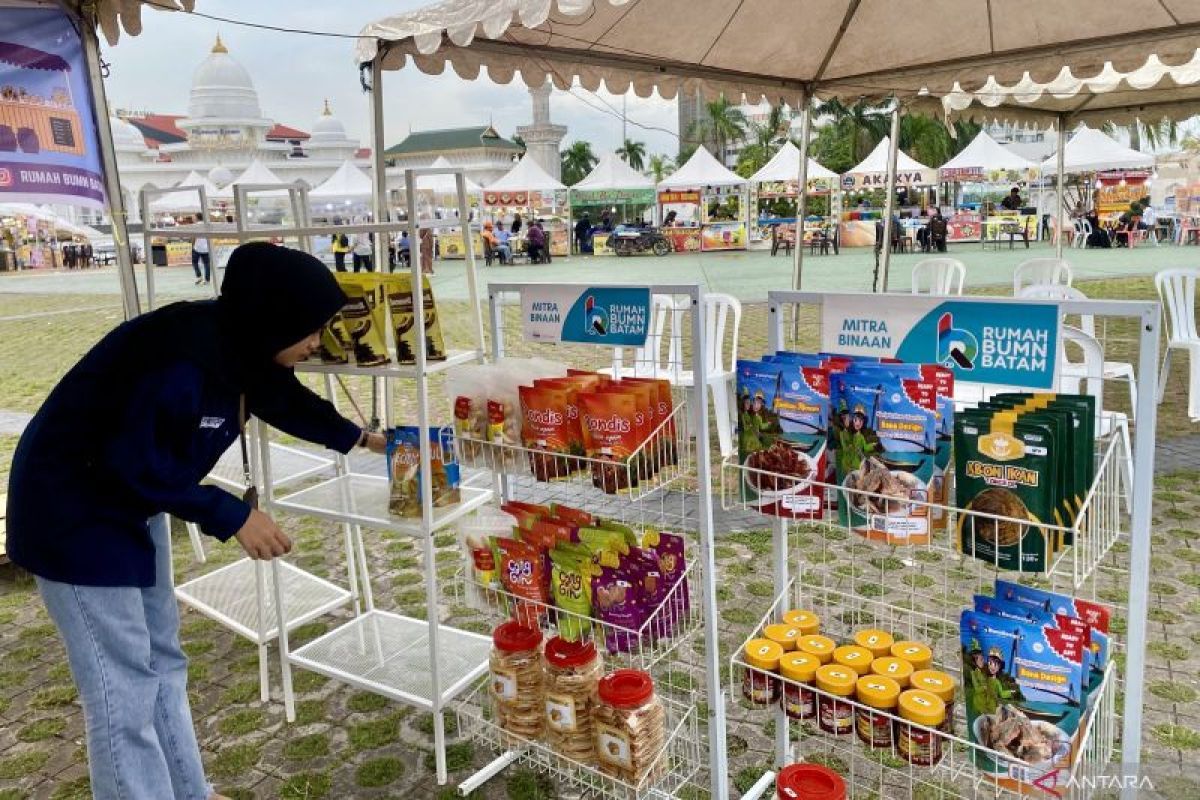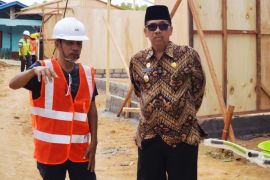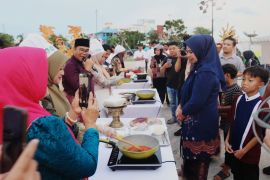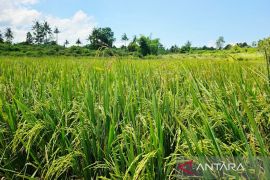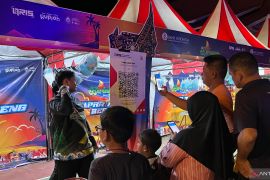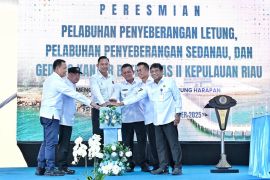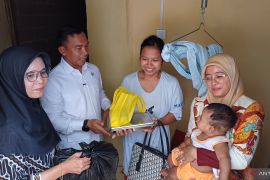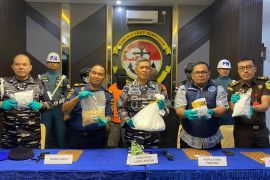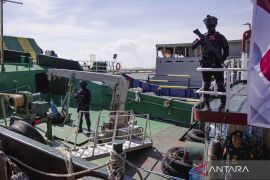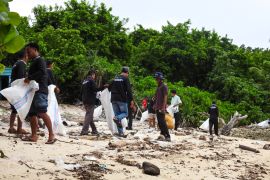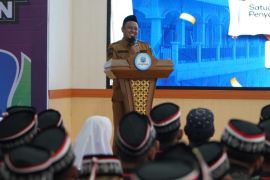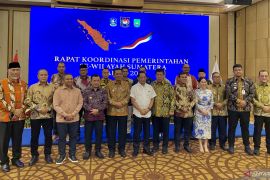Inside were crispy, savory snacks made from the humble tamban fish, once a simple salted fish, now transformed into a sought-after product with modern appeal.
For Dewi, the woman behind Tamban Menari, the journey began with a vision to turn local abundance into opportunity.
“I want this business to be not just for myself, but also to help others,” she said. A portion of her sales goes to fund the education of children from nearby islands — a gesture that reflects her belief that success should be shared.
Dewi sources her fish from small-scale fishermen near the Barelang Bridge and Setokok Island. The tamban, known for its high protein and omega-3 content, is seasoned with local spices, dried, and packed as a signature Batam souvenir.
The venture not only strengthens the local supply chain but also connects the region’s fishermen to a broader market.
The Riau Islands, a province of more than 2,000 islands scattered across the South China Sea, have long depended on the ocean. Now, their identity is expanding from traditional fishing grounds to the foundation of a sustainable blue economy.
“The Riau Islands are blessed with extraordinary marine wealth,” said Said Sudrajad, head of the provincial Marine Affairs and Fisheries Office. “Our challenge is to manage it wisely while increasing its value.”
The province is part of Indonesia’s Fisheries Management Area 711, with a potential yield of 1.3 million tons of fish annually. Of that, about 900,000 tons can be caught sustainably.
The Riau Islands contribute roughly 339,000 tons of fish each year, plus another 39,000 tons from aquaculture.
From raw catch to refined products
Once sold fresh or dried, local catches are now being turned into higher-value goods — spiced dried fish, tuna rendang, gonggong (sea snail) chips, and shrimp chili sauce. These products are now featured in souvenir shops, digital markets, and even exported abroad.
This shift marks a quiet revolution: from resource extraction to sustainable management and innovation. More than 45,000 businesses operate in the marine and fisheries sector, supporting over 300,000 livelihoods. While the sector’s contribution to the province’s GDP may trail manufacturing, its social footprint is immense.
Recognizing the sector’s role in sustaining local life, the Riau Islands government has turned its focus to empowering small businesses. Training sessions, product exhibitions, and branding workshops are regularly offered, often with support from the Bank Indonesia Riau Islands branch.
“The goal is not only to sell raw products but to process and package them so they have added value,” Sudrajad explained.
Dewi’s business has benefited from such programs, gaining skills in marketing, food safety, and packaging that meet national standards. “The training helped me improve quality and understand how to reach wider markets,” she said.
Founded in late 2020, Tamban Menari now produces around 1,000 snack packages each month with three employees, all local residents. They work closely with fishermen to harvest and prepare the fish. Supply challenges during the rainy season are met with increased production during the dry months.
Building connections beyond borders
Dewi’s journey also reflects how collaboration between MSMEs, banks, and trade institutions is helping local businesses expand. Through events like Gebyar Melayu Pesisir and the Trade Expo Indonesia, small entrepreneurs connect with investors and distributors from across Southeast Asia.
At a business matching session facilitated by Bank Indonesia, Dewi’s products caught the attention of resellers targeting Singapore and Malaysia — two markets geographically close yet filled with opportunity.
Digital transformation has also made a difference. Bank Indonesia encourages MSMEs to use the QRIS digital payment system, allowing cashless transactions at fairs and events. “Visitors rarely carry cash anymore,” Dewi said. “With QRIS, payments go directly to our accounts, making it faster and safer.”
A model for the blue economy
From fishermen in Setokok to processors in Batam, the Riau Islands’ blue economy embodies a cycle of empowerment — using marine wealth not just for extraction but for sustainable development.
Experts say such local initiatives play a crucial role in Indonesia’s broader blue economy strategy, which aims to balance conservation, innovation, and community welfare.
For Dewi, the success of Tamban Menari is a reminder that even the smallest fish can make waves. “The sea has always given us life,” she said, smiling at her booth filled with blue packages and curious visitors. “Now, it’s time we give something back — by using it wisely and helping others grow with us.”
As the crowd moved through the Batam MSME fair, the story of Tamban Menari reflected more than a business success — it represented a growing movement to turn the Riau Islands’ vast ocean potential into a sustainable, people-centered future.
Related news: Indonesia unveils waterfront city plan to boost blue economy
Related news: RI expands fish export access to Taiwan with 693 approved companies
Editor: Rahmad Nasution
Copyright © ANTARA 2025
